Towards Safer Digital Spaces

NETZ Bangladesh in collaboration with The Daily Star organised a roundtable titled, "Towards Safer Digital Spaces: Enhancing Legal and Policy Responses to VAWG in Bangladesh," on December 13, 2024. Here we publish a summary of the discussion.
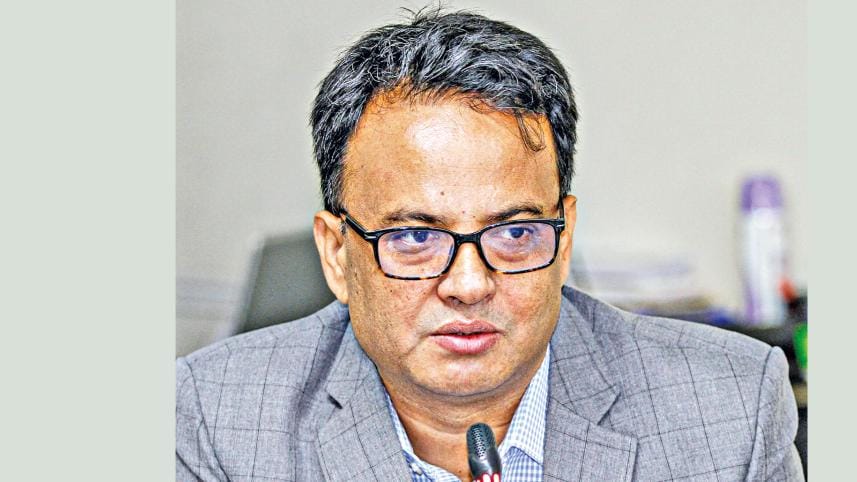
Shahidul Islam, Director, NETZ Bangladesh
Women are doubly marginalised, first by their gender and then by their socio-economic circumstances, such as living in poverty or belonging to marginalised groups like ethnic minorities. They face persistent and emerging challenges, particularly in cyberspace. Like any innovation, cyberspace brings its own set of issues, including patterns of misuse and the urgent need for a robust legal framework to prevent exploitation. However, addressing these challenges has been hindered by a lack of political, social, mental, philosophical, and structural preparedness.
Although the state has undertaken initiatives involving law enforcement agencies and other departments, significant gaps remain due to the time required by authorities to comprehensively understand these issues. Other notable barriers include legal loopholes, difficulties in implementation, and women's limited awareness of justice mechanisms.
We initiated this research to support the state's efforts by involving local communities and identifying areas where policies and strategies can be improved. Today's discussion offers an opportunity to build a more comprehensive understanding through insights from the research team, lessons learned from other organisations, and dialogue with government representatives.
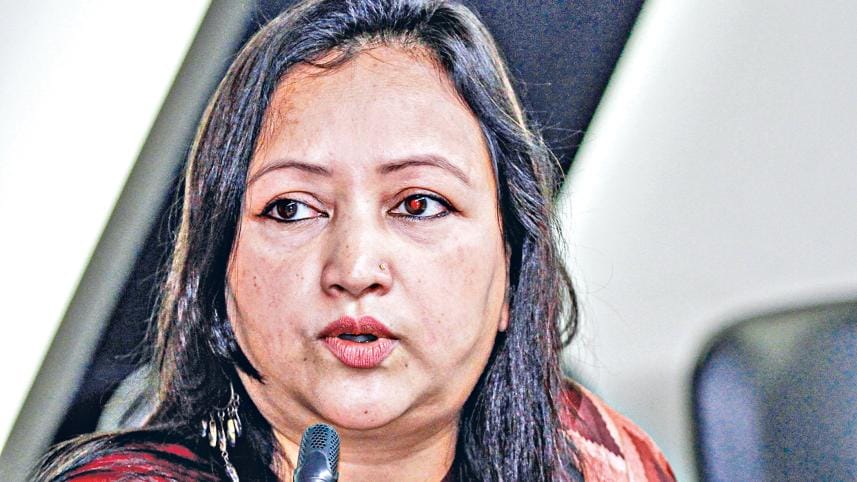
Sara Khatun, Programme Manager, Equal Human Rights, NETZ Bangladesh (Keynote presentation)
Despite the existence of over 25 policy instruments designed to protect women's rights, the reality of violence against women (VAW) in Bangladesh remains deeply concerning. While the Bangladesh Bureau of Statistics (BBS) provides an overview of VAW through its national surveys, it does not include specific data on Technology-Facilitated Violence Against Women (TF-VAW).
The COVID-19 pandemic and its aftermath saw a surge in technology use, but this rapid shift revealed critical gaps in understanding technology's risks. This lack of knowledge has created new opportunities for violence, particularly targeting women. In our study, conducted across eight divisions—Rajshahi, Natore, Joypurhat, Chapainawabganj, Dinajpur, Rangpur, Panchagarh, and Nilphamari—we documented various forms of online violence. These areas, already prone to gender-based violence (GBV) such as child marriage, have also experienced TF-VAW.
While existing reports highlight VAW, the representation of TF-VAW is minimal. Furthermore, most studies focus on internet users, neglecting women who rely on other communication technologies. This oversight inspired our research, which aimed to explore a broader scope of VAW, with particular attention to TF-VAW, while assessing community awareness, existing challenges, and policy gaps.
Our mixed-method study, conducted by Mamunur Rahman between July and November 2023, involved 11 focus group discussions (FGDs) with girls, young women, and their mothers; 12 Key Informant Interviews (KIIs); eight in-depth interviews (IDIs); and four participatory rural appraisals (PRAs). Additionally, we surveyed 300 respondents.
Findings revealed that 57% of respondents used the internet weekly, and 78.7% of women reported experiencing TF-VAW. Among these, 78.4% occurred on Facebook, while 28% were through messaging services like WhatsApp and Emo. Many women altered their online behaviour to mitigate risks: 84% restricted their profiles to private settings, 60% avoided sharing personal numbers, and 50% limited their social media presence.
The consequences of TF-VAW extended beyond cyberspace. Around 10.7% of women either lost or changed jobs, and 14.3% of female students changed schools or stopped attending altogether. Mental health issues affected 35% of women subjected to online threats.
Addressing TF-VAW presents numerous challenges, including a conceptual gap between cybercrime and digital harassment targeting women. Law enforcement struggles to apply the appropriate legislation, such as the Pornography Control Act 2012, Cyber Security Act 2023, or Women and Children Violence Protection Law 2000. Moreover, existing laws do not adequately cover digital violence against women.
The absence of laws addressing cyberbullying, hate speech, and digital sexual harassment exacerbates the problem. Social stigma and concerns about family reputation deter many victims from reporting cases, while the limited understanding and lack of gender sensitivity among law enforcement agencies undermine existing support mechanisms.
To effectively combat TF-VAW, it is essential to develop comprehensive legislation addressing sexual harassment, including technology facilitated VAW. Community awareness campaigns, involving both government and NGOs, must be prioritised alongside capacity-building initiatives for law enforcement to enhance gender sensitivity and technical expertise. Strengthening coordination between women's help desks and cyber support units is crucial, as is developing online tools, helplines, and psychosocial support services for victims.

Mahira Mamun, Research Team Member and Co-founder, Ella Pad
Students as well as community members those some lacked internet access, others, despite limited use, had already experienced technology-facilitated violence.
New internet users, particularly in rural areas, often lack proper orientation and guidance on safe online practices. They need structured training to navigate digital spaces responsibly, including managing social media interactions, blocking strangers, and implementing safety measures.

Mst. Hafija Khatun, Student Forum Member, Damkura High School, Paba, Rajshahi
One of my classmates experienced cyberbullying and threats from her private tutor on social media. Fortunately, her awareness of cyberbullying prompted her to inform a teacher, who subsequently reported the matter to the head teacher, leading to its resolution. Her knowledge, acquired through the student forum, empowered her to take appropriate action. However, many girls remain unaware of cyberbullying and lack the necessary skills to respond effectively to such incidents. This highlights the pressing need for targeted awareness programmes and practical tools to empower them, ensuring that these issues are promptly addressed and that victims feel supported in seeking help.

Md. Minarul Islam, Student Forum Member
It is essential to educate new users, particularly students, on identifying and responding to TF-VAW. The ICT Ministry could play a pivotal role by developing protocols to address these issues, enabling victims to report incidents anonymously and thereby reducing the impact of social stigma. Collaboration with the Department of Women's Affairs would further strengthen prevention efforts. Additionally, support from teachers and relevant authorities is crucial in fostering awareness and establishing a robust framework to effectively address and prevent technology-facilitated violence.
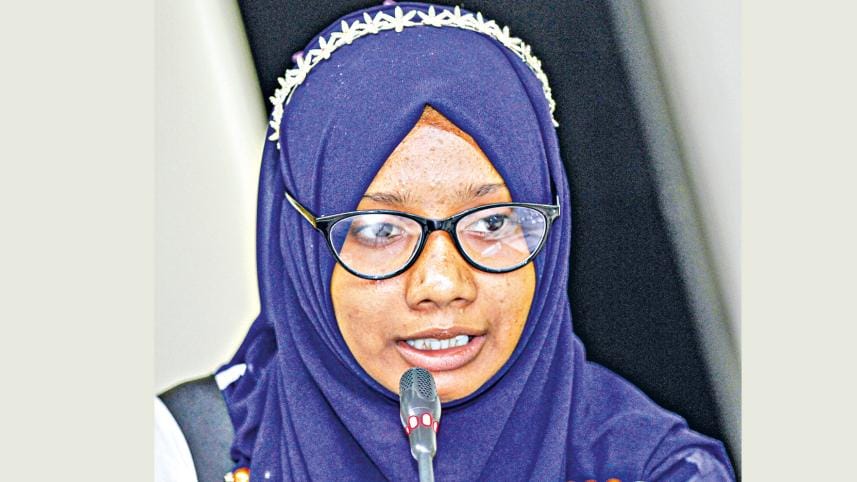
Mst. Liza Moni, Student Forum Member, Polashbari High School, Birol, Dinajpur
Cybercrime is increasingly prevalent in both urban and rural areas, affecting individuals across various demographics. A friend of mine recently experienced harassment via social media, leaving her distressed and unsure of how to respond. When she shared the issue with me, we decided to report it to a teacher. His prompt response and unwavering support ensured the matter was resolved swiftly and effectively. This experience underscores the importance of seeking timely assistance and fostering a supportive environment to combat cybercrime.

Sarwat Tarannum Nadia, Gender Focal, MRDI
With technological advancements, gender-based violence has evolved to include forms such as cyberbullying, and crimes driven by artificial intelligence, such as deepfakes, are beginning to surface in Bangladesh. Proactive awareness initiatives are essential to address these emerging issues.
Mass media plays a critical role in creating public awareness, as gender-based violence cannot be tackled in isolation. A holistic approach is necessary, involving awareness campaigns for children and women, with journalists bringing these issues into public discourse.
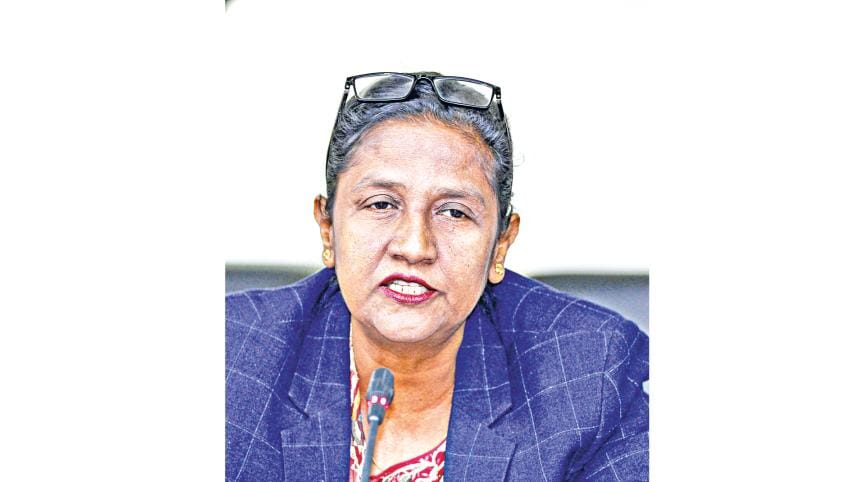
Israt Jahan, Project Director, YUKTA Project & Capacity Building Manager, DASCOH Foundation
Our research indicates that victims frequently hesitate to share their experiences with their families due to social stigma and a lack of awareness, leaving them isolated and unsupported. Tackling this issue necessitates raising awareness not only within student forums but also among families about responsible internet use and how to offer support in cases of harassment. Without emotional and mental support from their families, victims may withdraw from school or resort to self-destructive behaviours.
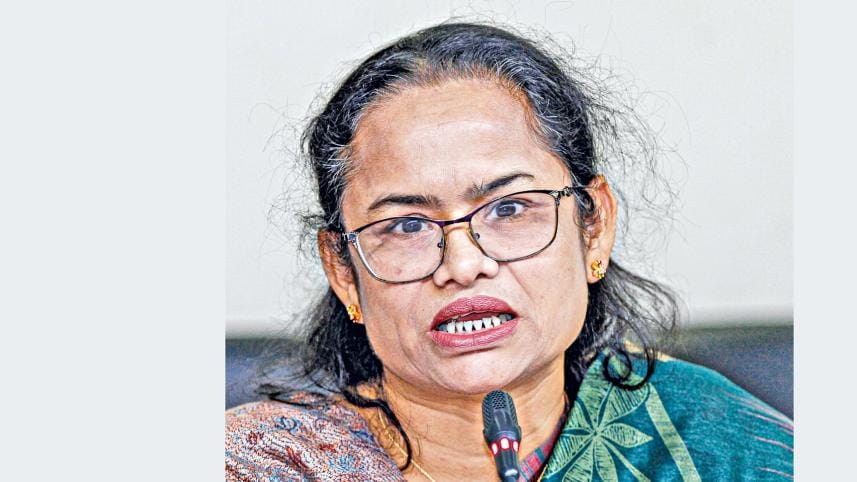
Rakiba Yasmin, Project Director, YUKTA Project, MKP
Violence against women is a global issue demanding urgent attention. To raise awareness, I recommend incorporating the potential dangers of internet usage into textbooks, accompanied by case-study-based stories to highlight real incidents.
Additionally, many pre-installed applications on new mobile devices, which often encourage addictive behaviour, cannot be uninstalled and must be force-stopped. This issue needs to be addressed at the policy level.
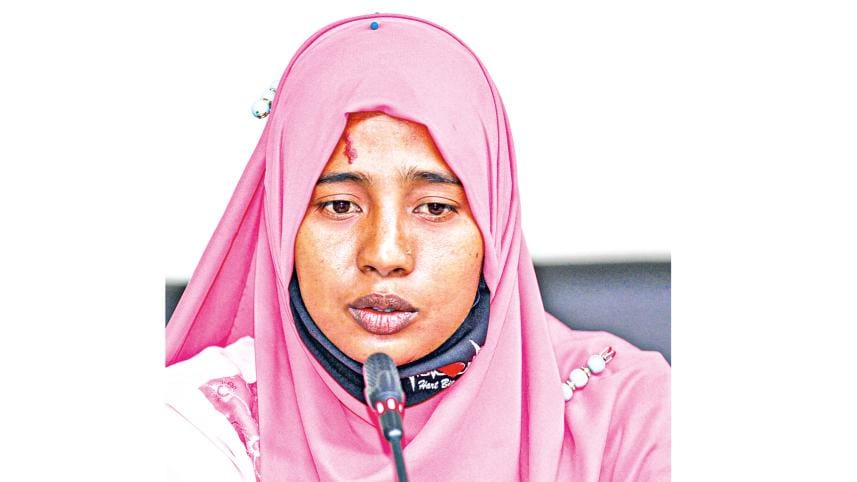
Irin Parvin Pinki, CSO Member, Paba, Rajshahi
As primary victims of cybercrimes, girls and women require parental awareness and support. Blaming them does nothing to resolve the issue. By fostering open, friendly relationships, parents can help prevent mistakes and ensure children make informed decisions online.
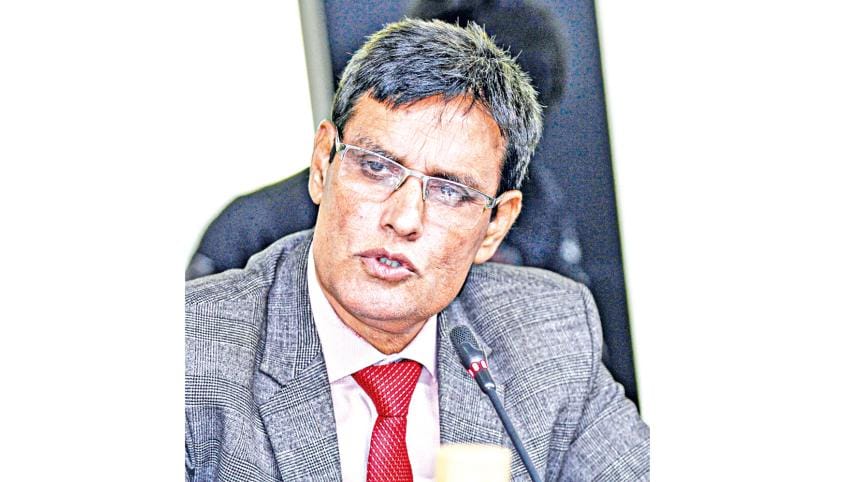
Humayn Kabir Azam, Assistant Professor of ICT, Rajbari College, Chapai Nawabganj, CSO Member
In contrast to my generation, which grew up in the early 1980s, today's students seem less motivated to attend classrooms. They spending a significant amount of time outside the classroom, deeply immersed in digital platforms. This growing trend demands immediate attention and regulation—this is a sincere appeal to the relevant authorities.

Mst. Mahabuba Yeasmin, Member, Agra Village CSO, Birol, Dinajpur
My personal experience with cyber safety has been profoundly unsettling, exemplified by a troubling case involving a newlywed couple. The couple initially connected through mobile phones, eventually leading to marriage. However, after just two years, the husband abandoned his wife. Recently, he resumed contact, expressing renewed interest and urging her to relocate to Dhaka despite her unwillingness. His persistent, unwanted messages constitute harassment and reflect the broader challenges faced by victims of digital violence.

Md. Sohan Islam, Student Forum Member, Danghirhat School and College, Taragonj, Rangpur
One of the most distressing incidents I recently witnessed involved a classmate who had been subjected to repeated bullying through fake Facebook, Instagram, and Messenger accounts. Upon further investigation, I discovered that this harassment had been occurring for a considerable period. We immediately reported the matter to the police, ensuring that the issue was given the attention it deserved.

Md. Belal Hossain, Member, Hariarekuthi Union CSO, Taragonj, Rangpur
I recently came across the case whose Facebook ID was hacked. We registered a General Diary (GD), and the issue was resolved however could not identify the perpetrator. I believe the concerned ministry should take proactive measures to address this issue
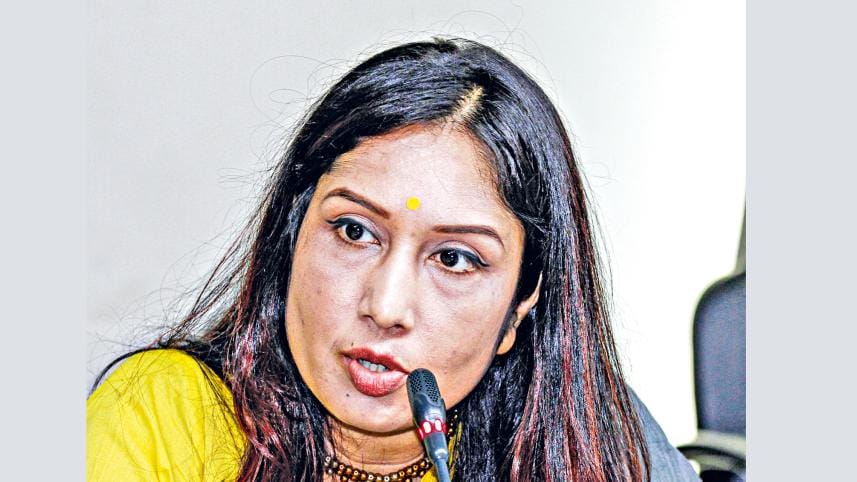
Nishath Sultana, Director – Influencing, Campaign and Communications, Plan International Bangladesh
We know, the Police Cyber Support for Women initiative, launched in November 2020, has received 18,000 reports of gender-based violence through its helpline, highlighting the extent of the issue. To tackle these challenges, it is crucial to enhance the capacity of law enforcement agencies, as current help desks face significant limitations. Furthermore, the recently abolished Cyber Security Act failed to adequately address digital harassment. A stronger focus on combating online gender-based violence is essential to protect women and ensure the success of the country's digital initiatives.
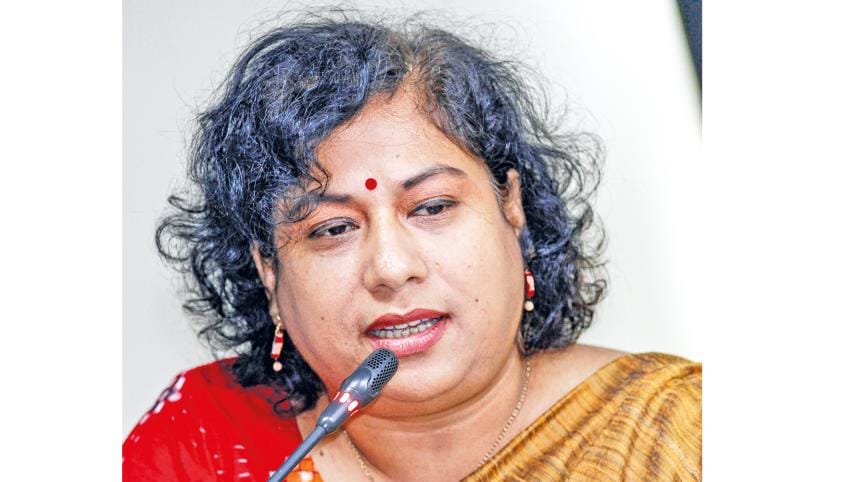
Jinat Ara Haque, Chief Executive, WE CAN
On Human Rights Day, phrases like "preventive," "transformative," and "responsive" dominate discussions. However, the focus must shift towards leveraging technology as a tool for empowerment.
Government campaigns should be strategically crafted to address and protect the "Boddho Duwar" (closed doors) and "Ruddho Pran" (stifled lives) of women, drawing inspiration from the evocative expressions of Begum Rokeya.
Bridging the intergenerational gap also emerges as a critical priority in this context. Ultimately, reducing and eventually eliminating violence against women demands sustained cooperation between men and women. This calls for a societal shift in attitudes rather than reliance on superficial campaigns.
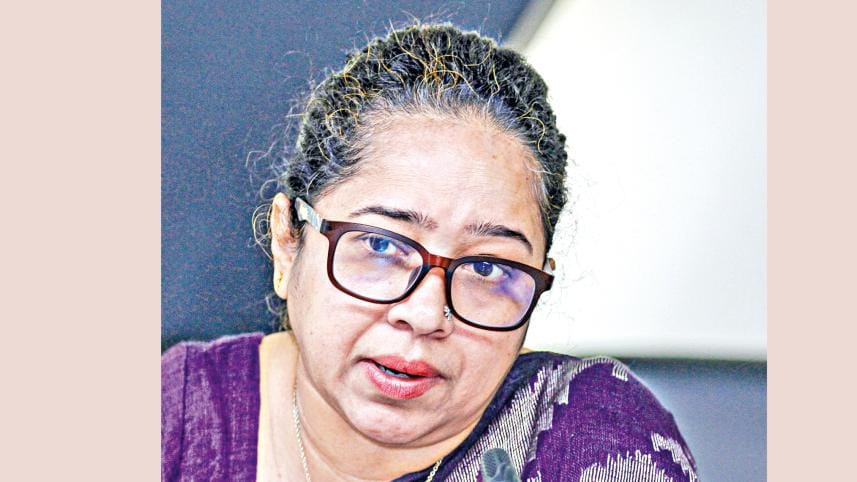
Masuma Billah, Programme Head, Gender Justice & Diversity Programme, BRAC
While school students benefit from accessing educational materials online, their digital engagement must be closely monitored to ensure their safety. In rural areas, orientation programmes should actively involve teachers to guide and protect students, helping them navigate the digital world responsibly.
The alarming increase in suicides among girls due to mental distress underscores the urgency of addressing these issues. Comprehensive strategies, along with effective community engagement, are crucial to safeguarding the mental and emotional well-being of young people, especially girls, in the digital age.

Abu Sayed Md. Kamruzzaman, NDC, Additional Secretary, ICT Division & Director General, National Cyber Security Agency, Information & Communication Technology (ICT) Division
The Cyber Security Act includes provisions under Sections 21, 24, and 25 to address sexual harassment and the dissemination of offensive content. While this Act improves upon existing laws, some adjustments have been made, such as recognising bullying as an offence and increasing penalties for hacking-related crimes. However, verbal harassment remains unclassified as an offence.
To combat cyber offences, the government has established a strong framework. A central committee under the ICT Department oversees these efforts, while district-level committees, led by district commissioners, and upazila-level committees, led by UNOs, manage local enforcement. Additionally, every school and college is now required to form committees to address cyber-related issues.
Awareness is crucial. Citizens must be informed about cyber offences and the available remedies. In this regard, a national helpline (3338) and a cyber security awareness call centre (13219) have been launched, specifically to assist teenagers who may feel uncomfortable discussing their problems with guardians or teachers.
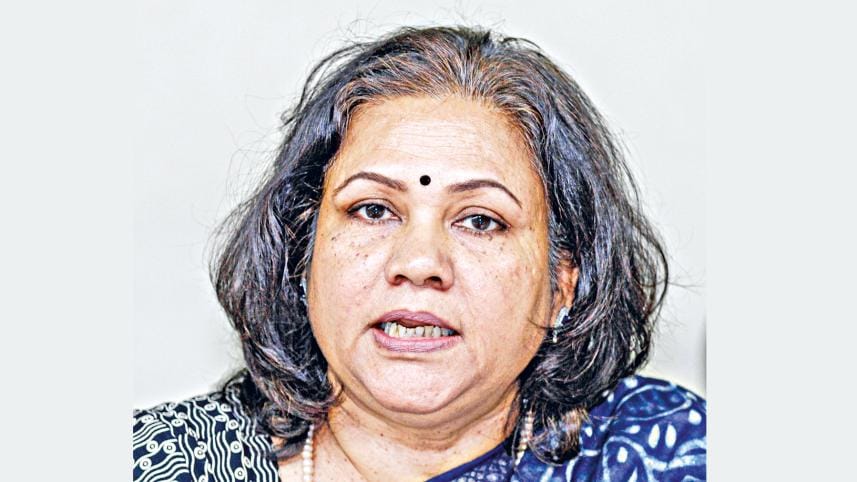
Hasne Ara Begum, Social Development and Gender Expert, Asian Development Bank (ADB)
Rather than tackling these problems collectively, the burden is frequently shifted onto parents or the youth themselves. Responsibility must be shared by all.
While it is encouraging to see policies being revised, an ideological focus on protection—rather than mere prevention—must underpin every act and policy to ensure meaningful progress.
While discussions around digital cyber security often emphasise centralised government control, there is a notable lack of platforms for individuals to report incidents promptly. A robust system is needed to process allegations in real time, categorise cases effectively, and ensure timely support for victims.
Legislation must go beyond punishing offenders to also raising awareness about the consequences of such actions. Although a grassroots government structure exists, its functionality and sensitivity in addressing these issues require critical evaluation.

Md. Manir Hossain, Additional Director (Deputy Secretary), Department of Women Affairs Ministry, MOWCA
The Government of Bangladesh is committed to protecting women's rights through legislation However, it is imperative that these laws are not only established but also enforced effectively. Additionally, public awareness of rights must be significantly enhanced.
Since its inception, the Department of Women Affairs has tirelessly advocated for gender equality, striving to create equitable opportunities for women and children in diverse contexts. Its programmes and training initiatives focus on improving the digital skills of Bangladeshi women while prioritising their safety in an interconnected world.
At the district and upazila levels, committees focused on the prevention of violence against women and children are working diligently to eliminate hostilities. Furthermore, the National Action Plan for the Prevention of Violence Against Women and Children (2018-2030) is being implemented with meaningful impact.

Taherul Huq Chauhan, Additional Deputy Inspector General of Police, Bangladesh Police
The Dhaka Metropolitan Police must actively negotiate and design daily action plans to address complaints lodged by women, most of which pertain to violence. In the digital sphere, Bangladeshi children and youths are increasingly exposing themselves on social media, often driven by a desire for quick recognition and fame.
The Cyber Security Act of 2023 lacks a clear definition of 'harassment,' and similar ambiguities exist in the Suppression of Violence Against Women and Children Act, particularly within its sexual harassment provisions. For laws to be effective, they must reflect grassroots realities.
The absence of a comprehensive Financial Crimes Act is a critical gap, as current legislation on money laundering is insufficient to address the complexities of modern financial fraud. Police institutions often encounter challenges in addressing such cases, requiring further clarity and reform in the legal framework.
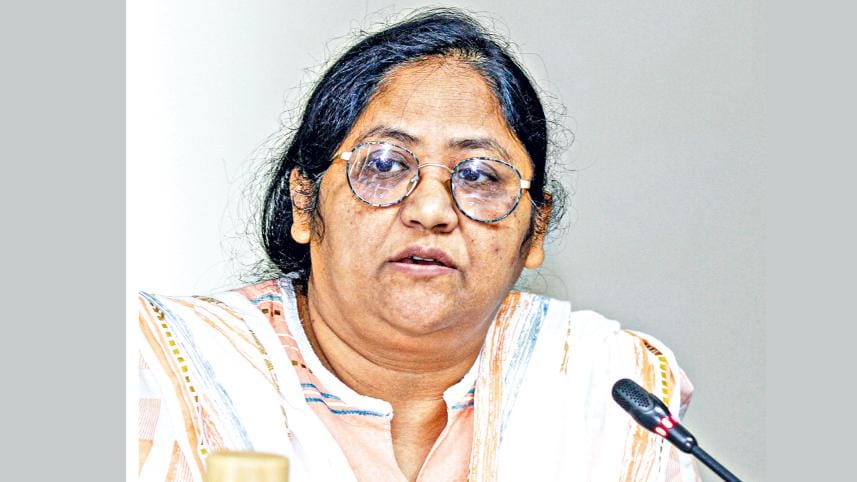
Afsana Binte Amin, Programme Manager, Equal Human Rights, NETZ Bangladesh
Each year, on December 9, we commemorate the legacy of Begum Rokeya, a pioneer of Bengali feminist thought and a staunch advocate for women's rights during British India. Her contributions remain central to the history of gender politics in the region.
The harassment of women in public spaces, exacerbated by the misuse of technology, demands urgent attention. Community involvement and collective action are indispensable in addressing this growing issue effectively. As we confront gender-based violence within virtual spaces, we must adopt proactive strategies to ensure protection and empowerment.

Tanjim Ferdous, In-Charge, NGOs & Foreign Missions, Business Development Team, The Daily Star & Moderator
The increasing use of technology has given rise to a new concern: TF-VAWG. This not only compromises the safety of women but also limits their participation in the digital sphere. Such violence creates mental distress and acts as a barrier to social and economic empowerment. Despite existing laws and policies aimed at preventing violence against women and children, no specific legislation has been introduced to combat technology-facilitated violence.
Recommendations
- Enact a comprehensive sexual harassment law that reflects grassroots realities and effectively addresses TF-VAWG.
- Strengthen coordination among the ICT Ministry, Ministry of Women Affairs, and Police Department to enhance the support system.
- Develop and implement comprehensive capacity-building programmes for law enforcement agencies to foster gender sensitivity and enhance their technical expertise.
- Provide proper orientation and guidance on safe online practices to new internet users, especially in rural areas.
- Promote parental awareness of digital monitoring tools to supervise children's mobile phone usage responsibly.
- Engage parents, schools, and NGOs in collaborative safety programmes to address cybercrime.
- Conduct awareness campaigns to inform citizens about cyber offences and available remedies.
- Develop a robust system to address allegations in real time, categorise cases effectively, and ensure timely support for victims.
- Engage teachers in rural orientation programmes to guide students responsibly through the digital world, and incorporate internet safety topics and real-case studies into textbooks.
 For all latest news, follow The Daily Star's Google News channel.
For all latest news, follow The Daily Star's Google News channel.
Comments